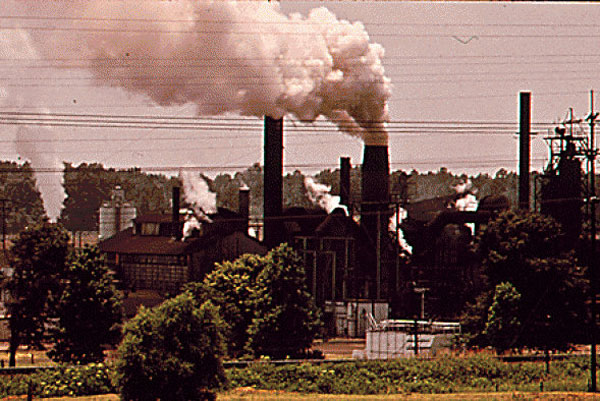- La Feria Native Soon To Retire From The Military This Summer
- Senior Eneece Avila Takes Pride in her State Title
- Dr. Noemi Infante, Harlingen Medical Center Open New Women’s Clinic
- Santa Rosa Cameron County Park Partially Reopens
- Santa Rosa Takes to Regionals Meet in Kingsville, Tx
- Long-Standing Nexstar Tower in La Feria Decommissioned
- Lionettes Powerlifting Meet
- Local Business Holds Event to Benefit RGV Shriners Club
- Knights of Columbus Holds it’s 30th Annual Golf Tournament
- KGBT Tower Dismantled
Reports: TX Industries Can Save Billions Through Energy Efficiency
- Updated: October 7, 2016

Two new reports say chemical plants and other large industries could save billions on energy costs if they implement efficiency strategies from the Clean Power Plan. Photo: WikimediaCommons
by Mark Richardson/TNS
AUSTIN, Texas – New studies show that industrial power users in Texas and across the country could gain a competitive edge in global markets by implementing energy-efficiency strategies from the Clean Power Plan.
The Alliance for Industrial Efficiency ranks Texas first in the nation for its potential to cut carbon emissions and save money by investing in industrial energy efficiency.
The Alliance’s executive director, Jennifer Kefer, said changes at the industrial level are necessary to have a major impact.
“The industrial sector is the nation’s largest energy user,” Kefer explained. “It represents about one-third of U.S. energy demand, and so it’s virtually impossible to take on climate change without tackling emissions from the industrial sector.”
According to the report, industrial energy efficiency upgrades could save Texas manufacturers more than $23 billion on utility bills by 2030, while cutting as much carbon dioxide as closing 4 coal-fired power plants. And the Another analysis from Georgia Tech estimates industrial energy savings through Clean Power Plan compliance at $7.5 billion a year by 2030.
Dr. Marilyn Brown, Brook Byers Professor of Sustainable Systems at Georgia Institute of Technology’s School of Public Policy, and lead author of their study said adopting a low-cost Clean Power Pathway to compliance will provide industrial users significant benefits.
“Money spent on plant modernization or product improvement, expanding the customer base for these products leading to business growth, local jobs, all kinds of benefits,” she said.
Brown said the studies show that if large industries, including petroleum, paper, plastics, and chemicals, work toward compliance with the Clean Power Plan, they could not only save billions in energy costs but would significantly reduce the carbon pollution driving climate change.
“Industry is the one sector of the economy that uses the most fossil fuels directly on site, so the pollution consequences of large-scale growth of industry is more concerning than large-scale growth of, say, household consumption,” Brown added.
Oral arguments begin today in a federal Court of Appeals in Washington, D.C. on the legal challenge by a large group of states and business interests to the Clean Power Plan. The plan sets state-specific carbon-reduction targets, with the goal of reducing carbon emissions by 30 percent over the next decade, as compared with 2005 levels.






